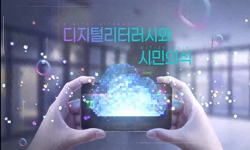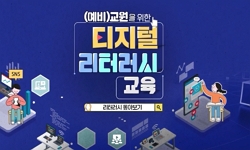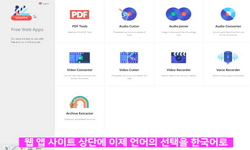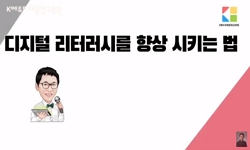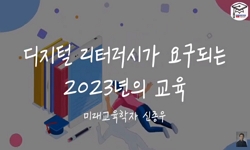디지털 리터러시는 현대 사회의 필수 역량 중 하나로, 각 국가에서는 디지털 리터러시 교육과정을 개발하여 운영하고 있다. 이러한 교육과정이 디지털 리터러시 개념의 변화를 반영하여 균...
http://chineseinput.net/에서 pinyin(병음)방식으로 중국어를 변환할 수 있습니다.
변환된 중국어를 복사하여 사용하시면 됩니다.
- 中文 을 입력하시려면 zhongwen을 입력하시고 space를누르시면됩니다.
- 北京 을 입력하시려면 beijing을 입력하시고 space를 누르시면 됩니다.

국내외 디지털 리터러시 교육과정 분석 = The Analysis of National and International Curricula for Digital Literacy Education
한글로보기https://www.riss.kr/link?id=A107912489
- 저자
- 발행기관
- 학술지명
- 권호사항
-
발행연도
2021
-
작성언어
-
- 주제어
-
등재정보
KCI등재
-
자료형태
학술저널
-
수록면
75-101(27쪽)
-
KCI 피인용횟수
0
- DOI식별코드
- 제공처
-
0
상세조회 -
0
다운로드
부가정보
국문 초록 (Abstract)
디지털 리터러시는 현대 사회의 필수 역량 중 하나로, 각 국가에서는 디지털 리터러시 교육과정을 개발하여 운영하고 있다. 이러한 교육과정이 디지털 리터러시 개념의 변화를 반영하여 균형 있고 충분한 교육적 경험을 제공하고 있는지 논의할 필요가 있다. 이에 본 연구에서는 한국, 아일랜드, 영국, 호주, 캐나다 5개 국가의 교육과정을 대상으로 학습목표를 분석하였다. 먼저 디지털 리터러시 구성요인을 기준으로 교육과정을 분석한 결과, 각 국가의 디지털 리터러시 교육의 목적에 따라 구성 비율에 차이가 있음을 확인하였다. 특히, 한국과 아일랜드에서는 디지털 리터러시 구성요인 중 컴퓨팅 사고 역량이 가장 높은 비율을 차지한 반면에 영국과 캐나다에서는 디지털 윤리가 가장 높은 비율로 나타났다. 또한 Tyler가 제시한 교육목표 유형에 따라 디지털 리터러시 교육과정의 목표를 분석한 결과에서는 분석대상 5개 국가의 교육목표가 모두 정보 획득과 사고력 개발의 비율이 높은 것을 확인하였다. 이와 같은 연구결과를 토대로 디지털 리터러시 교육 프로그램의 설계와 운영을 위한 시사점을 제시하였다.
다국어 초록 (Multilingual Abstract)
Digital literacy is considered an essential competency in modern society, and related curricula have been developed and operated across the world. As the concept of digital literacy has gradually changed and expanded, it is necessary to discuss whethe...
Digital literacy is considered an essential competency in modern society, and related curricula have been developed and operated across the world. As the concept of digital literacy has gradually changed and expanded, it is necessary to discuss whether domestic and foreign digital literacy curricula provide diverse digital literacy educational experiences. Thus, this study aims to analyze the curricula for digital literacy to derive implications for digital literacy education. Five countries, South Korea, Ireland, the United Kingdom, Australia, and Canada, were selected for the curricular analysis. The learning objectives in the curricula were analyzed regarding the components of digital literacy and the types of learning objectives suggested by Tyler. The results indicated that the proportion of digital literacy components varies depending on the educational purpose of each country. Specifically, computational thinking accounted for the highest proportion in Korea and Ireland, while digital ethics accounted for the highest in England and Canada. Additionally, the types of learning objectives have been biased toward information acquisition and critical thinking development in most countries. These findings suggest implications for designing and developing a curriculum for digital literacy.
참고문헌 (Reference)
1 계보경, "해외 디지털리터러시 교육과정 및 프로그램 운영 동향" 한국교육학술정보원 2017
2 박채형, "타일러의 교육과정 모형 : 매력과 함정" 한국도덕교육학회 20 (20): 27-48, 2008
3 김종수, "타일러 교육과정개발이론에서의 교사의 역할과 위상에 관한 논고" 교육연구원 32 (32): 61-80, 2016
4 교육부, "초・중등학교 교육과정 총론"
5 유선영, "주한 외국인 유치원의 교육과정 분석: International Primary Curriculum(IPC)을 중심으로" 한국열린유아교육학회 14 (14): 447-465, 2009
6 양정애, "인격권 보호를 위한 디지털 시민성 함양 : 디지털 리터러시 교육의 필요성을 중심으로" 언론중재위원회 3 (3): 85-125, 2017
7 김보현, "유아교사의 디지털 리터러시 요인과 교수효능감이 스마트 교육 실행에 미치는 영향" 미래유아교육학회 26 (26): 97-119, 2019
8 홍명희, "오픈 콘텐츠를 활용한 디지털 리터러시 학습 요소 구성과 활용" 한국정보교육학회 22 (22): 711-721, 2018
9 박주현, "미디어정보 리터러시 역량과 교육내용 분석을 통한 교육과정 개발 방향 탐구" 한국정보관리학회 37 (37): 119-144, 2020
10 김양은, "미디어 리터러시 교육에 대한 해외 동향" 행복한 교육
1 계보경, "해외 디지털리터러시 교육과정 및 프로그램 운영 동향" 한국교육학술정보원 2017
2 박채형, "타일러의 교육과정 모형 : 매력과 함정" 한국도덕교육학회 20 (20): 27-48, 2008
3 김종수, "타일러 교육과정개발이론에서의 교사의 역할과 위상에 관한 논고" 교육연구원 32 (32): 61-80, 2016
4 교육부, "초・중등학교 교육과정 총론"
5 유선영, "주한 외국인 유치원의 교육과정 분석: International Primary Curriculum(IPC)을 중심으로" 한국열린유아교육학회 14 (14): 447-465, 2009
6 양정애, "인격권 보호를 위한 디지털 시민성 함양 : 디지털 리터러시 교육의 필요성을 중심으로" 언론중재위원회 3 (3): 85-125, 2017
7 김보현, "유아교사의 디지털 리터러시 요인과 교수효능감이 스마트 교육 실행에 미치는 영향" 미래유아교육학회 26 (26): 97-119, 2019
8 홍명희, "오픈 콘텐츠를 활용한 디지털 리터러시 학습 요소 구성과 활용" 한국정보교육학회 22 (22): 711-721, 2018
9 박주현, "미디어정보 리터러시 역량과 교육내용 분석을 통한 교육과정 개발 방향 탐구" 한국정보관리학회 37 (37): 119-144, 2020
10 김양은, "미디어 리터러시 교육에 대한 해외 동향" 행복한 교육
11 이원섭, "미디어 교육 경험과 미디어 리터러시가 비판적 사고 성향에 미치는 영향 : 중고등학생의 사례를 중심으로" 한국콘텐츠학회 14 (14): 795-809, 2014
12 김여라, "디지털 시대의 미디어 리터러시 해외 사례 및 시사점" 국회입법조사처 2019
13 신소영, "디지털 리터러시 측정도구 개발 및 타당화 연구" 학습자중심교과교육학회 19 (19): 749-768, 2019
14 이운지, "디지털 리터러시 교육과정 프레임워크 개발 연구" 교육연구소 40 (40): 201-221, 2019
15 김혜준, "디지털 리터러시 교육 실행에 대한 교사의 인식: 학교의 지원을 중심으로" 학습자중심교과교육학회 20 (20): 139-161, 2020
16 장은주, "교육의 변화와 디지털 역량. 정책연구"
17 유영만, "eLearning과 디지털 리터러시 : 디지털 시대의 새로운 학습능력" 8 (8): 83-107, 2001
18 Capurro, R., "Why information ethics?" 9 (9): 50-52, 2018
19 DQ Institute, "What is the DQ framework?" DQ Institute
20 MediaSm, "Use, Understand & Create: A Digital Literacy Framework for Canadian Schools"
21 Eshet, Y., "Thinking in the digital era : A revised model for digital literacy" 9 (9): 267-276, 2012
22 Koltay, T., "The media and the literacies : Media literacy, information literacy, digital literacy" 33 (33): 211-221, 2011
23 Prasiratesang, R., "The development in the innovation of the research-based instruction model in the curriculum development course for students of the teaching profession" 3 (3): 24-34, 2020
24 Pangrazio, L., "Reconceptualising critical digital literacy" 37 (37): 163-174, 2016
25 UNESCO, "Recommendations on assessment tools for monitoring digital literacy within UNESCO's digital literacy global framework" UNESCO
26 OECD, "PISA 2009 results: What students know and can do: Student performance in reading, mathematics and science (Volume I)" OECD
27 Bawden, D., "Origins and concepts of digital literacy" 30 : 17-32, 2008
28 Ontario Ministry of Education, "Ontario Helping Students Learn to Code" Newsroom
29 Minkel, W., "No, it’s not all true!" 12 : 33-34, 2000
30 Department for Education, "National curriculum in England: computing programmes of study"
31 Calvani, A., "Models and instruments for assessing digital competence at school" 4 (4): 183-193, 2008
32 Aufderheide, P., "Media literacy: A report of the national leadership conference on media literacy" Aspen Institute 1993
33 Lunenburg, F. C., "Key components of a curriculum plan : Objectives, content, and learning experiences" 2 (2): 1-4, 2011
34 Calvani, A., "Issues in Information and Media Literacy: Education, Practice and Pedagogy, Vol. II" Informing Science Press 153-172, 2009
35 Hobbs, R., "International handbook of literacy and technology, Vol. II" Routledge 15-28, 2006
36 Mioduser, D., "Handbook on Information Technologies for Education & Training" Springer 2002
37 UNESCO, "Global media and information literacy assessment framework: Country readiness and competencies" UNESCO
38 European Commission, "European framework for the digital competence of educators: DigCompEdu" Publications Office of the European Union
39 Alexander, B., "Digital literacy: An NMC Horizon project strategic brief. (Volume 3.3, October 2016)"
40 Eshet, Y., "Digital literacy : A conceptual framework for survival skills in the digital era" 13 (13): 93-106, 2004
41 Glister, P, "Digital literacy" John Wiley & Sons 1997
42 Buchholz, B. A., "Digital citizenship during a global pandemic : moving beyond digital literacy" 64 (64): 11-17, 2020
43 NCCA, "Digital Media Literacy (DML)"
44 Martin, A., "DigEuLit : Concepts and tools for digital literacy development" 5 (5): 249-267, 2006
45 Buckingham, D., "Defining digital literacy-What do young people need to know about digital media?" 10 : 21-35, 2015
46 European Council, "Council recommendation of 22 may 2018 on key competences for lifelong learning Publications Office of the European Union"
47 Barr, D., "Computational thinking : A digital age skill for everyone" 38 (38): 20-23, 2011
48 Wing, J. M., "Computational thinking" 49 (49): 33-35, 2006
49 European Commission, "Communication from the commission to the European parliament, the council, the European economic and social committee and the committee of the Regions - A European approach to media literacy in the digital environment" Publications Office of the European Union
50 Hunkins, F. P., "Beyond Tyler and Taba : Reconceptualizing the curriculum process" 69 (69): 4-18, 1994
51 Tyler, R. W., "Basic principles of curriculum and instruction" University of Chicago Press 1949
52 American Library Association, "ALA action : 21st century literacy" 29 (29): 1-8, 1998
53 Covello, S, "A review of digital literacy assessment instruments" Syracuse University 2010
동일학술지(권/호) 다른 논문
-
- 인하대학교 교육연구소
- 양종현 ( Yang Jonghyun )
- 2021
- KCI등재
-
학교 조직의 학습조직문화, 흡수역량, 학교조직효과성 간 구조적 관계 분석
- 인하대학교 교육연구소
- 이민규 ( Lee Min Kyu )
- 2021
- KCI등재
-
IB PYP 사례 연구를 통한 학교 교육과정 혁신 방안 탐구
- 인하대학교 교육연구소
- 홍선주 ( Hong Sunju )
- 2021
- KCI등재
-
- 인하대학교 교육연구소
- 강수정 ( Kang Su Jung )
- 2021
- KCI등재
분석정보
인용정보 인용지수 설명보기
학술지 이력
| 연월일 | 이력구분 | 이력상세 | 등재구분 |
|---|---|---|---|
| 2022 | 평가예정 | 재인증평가 신청대상 (재인증) | |
| 2019-01-01 | 평가 | 등재학술지 유지 (계속평가) |  |
| 2016-01-01 | 평가 | 등재학술지 선정 (계속평가) |  |
| 2015-12-31 | 학술지명변경 | 외국어명 : 미등록 -> Journal of Education & Culture |  |
| 2015-01-01 | 평가 | 등재후보학술지 유지 (계속평가) |  |
| 2013-01-01 | 평가 | 등재후보 1차 PASS (등재후보1차) |  |
| 2012-01-01 | 평가 | 등재후보 1차 FAIL (등재후보1차) |  |
| 2011-01-01 | 평가 | 등재후보학술지 유지 (등재후보1차) |  |
| 2009-01-01 | 평가 | 등재후보학술지 선정 (신규평가) |  |
학술지 인용정보
| 기준연도 | WOS-KCI 통합IF(2년) | KCIF(2년) | KCIF(3년) |
|---|---|---|---|
| 2016 | 1.48 | 1.48 | 1.37 |
| KCIF(4년) | KCIF(5년) | 중심성지수(3년) | 즉시성지수 |
| 1.42 | 1.53 | 1.481 | 0.24 |





 KCI
KCI KISS
KISS